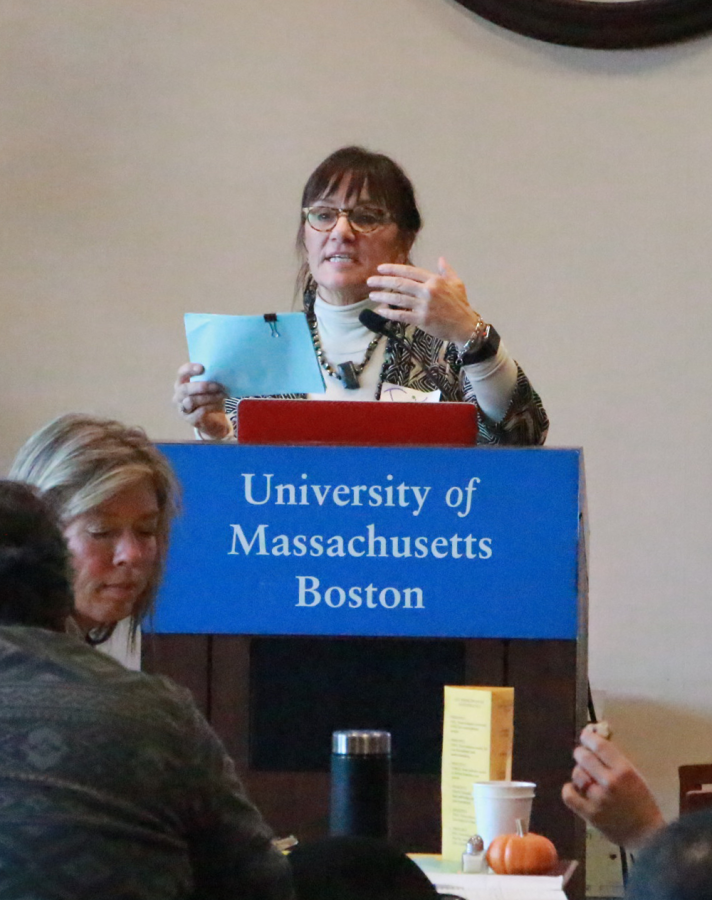Students, faculty, and staff gathered on Wednesday, Nov. 8, to discuss the differences between civil and uncivil dialogue at this year’s World Café at the University of Massachusetts Boston Alumni Lounge. Tables were dressed in brightly colored plastic covers and there were snacks and coffee at each table. Nearly all seats were filled; approximately 30 people attended.
“We will act in ways to advance social justice,” said Jacqueline Lageson, the coordinator of the event, and a senior lecturer II in the sociology department with areas of expertise in criminology, delinquency, policing, and drugs and society.
The event was hosted by the Office of Student Leadership and Community Engagement (OSLCE) and Breaking the Cycle of Violence Initiative (BCVI). World Café describes itself as a “simple, effective, and flexible format for hosting large group dialogue.” The dialogue is hosted each year and focuses on a different theme each time it is held.
Approximately four students sat at each table and held engaging conversations on civil and uncivil discourse. The discussions were prompted by questions that were prepared by the coordinators of the event. To initiate conversation, an episode of “American Race” screened which Charles Barkley, the host of the show, interviewed White Supremacist Richard Spencer on race in America: “Equality? That’s nonsense. There is no equality in nature,” Spencer said when asked if he believed in equality. “In my heart there was a lot of anger… The idea that this type of racism exists is sad, it makes me angry.” Barkley said to his audience.
“The central question is, how do you have a civil conversation with someone, with whom you disagree?” said Lageson to the audience. She also pointed out other secondary questions for the audience to consider.
Members of the audience were also asked to share their experiences of times they had to deal with or were involved in a civil or uncivil conversation.
“From my experiences, I feel like people take it really personally,” said David Noori, an attendee, during a discussion. Noori explained that because everyone is different, sometimes, people can take offense easily. “It gets to the point where you’re not rational and you’re more biased,” Noori said. “When it comes to disagreeing, first of all, facts, because you can’t argue with facts,” he added.
“UMass [Boston] is a lot different to a college I went to in New Hampshire,” said graduate student Joe Silcox. He told The Mass Media that when he tried to facilitate conversation at his former university, “it was a road that you didn’t want to go down.”
“I think the reality is different for every person. If I think something is true, you think something is true, it’s true to you and it’s true to me, but where we meet in the middle is the challenge,” Silcox said.
“I think that’s the beauty of a place like this, I myself learn how to interact with people who are different than me everyday,” Silcox added.





















































